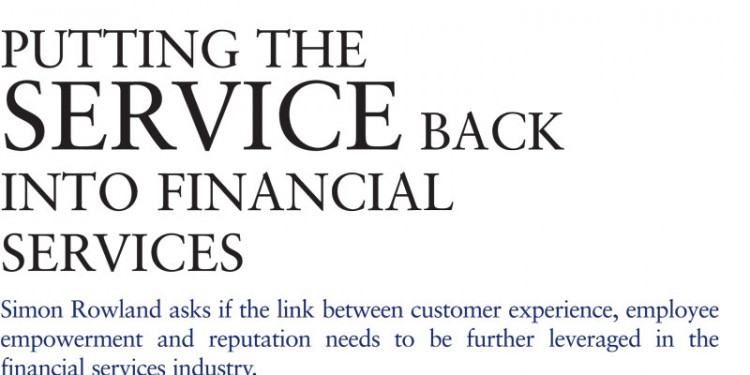In an industry like financial services, where there is little differentiation apart from price, and where most meaningful product innovations are easily copied, customer service is genuinely an area in which a company can set itself apart – for bad as well as good. But customer service is about what the customer experiences rather than what the top brass proclaim or the footsoldiers try to provide. Determining the drivers that deliver the service that really matters to customers would therefore offer a source of competitive advantage, and recent research by UffindellWest reveals some new insights on this issue.
Some things are fairly obvious – a company is unlikely to be rated for truly exceptional customer experience unless, as well as consistently good service, it also offers value for money and is good at
resolving complaints and problems. But, as Simon Rowland relates, it is very clear from the research that respondents were not especially concerned about the ‘material’ aspects of service – the hard, measurable deliverables that so many companies focus on. It is therefore increasingly important also to excel on other dimensions, such as shared ethics, valuing (and showing that you value) the customers’ business, and treating them as individuals.
This is easy to say but tricky to achieve, because it means that truly great service revolves around emotional people-to-people bonds. One key element that emerges is that these emotional aspects are most effectively conveyed if employees have a high degree of job satisfaction. This in turn, according to Rowland, is directly correlated with three categories of employee experience – empowerment, or ‘I can make a difference’; engagement (I am committed to the business); and reputation (I am proud to work here). Get the employee commitment, and you have a good chance of getting customer commitment as well.
Please download the PDF document to view the full article.

